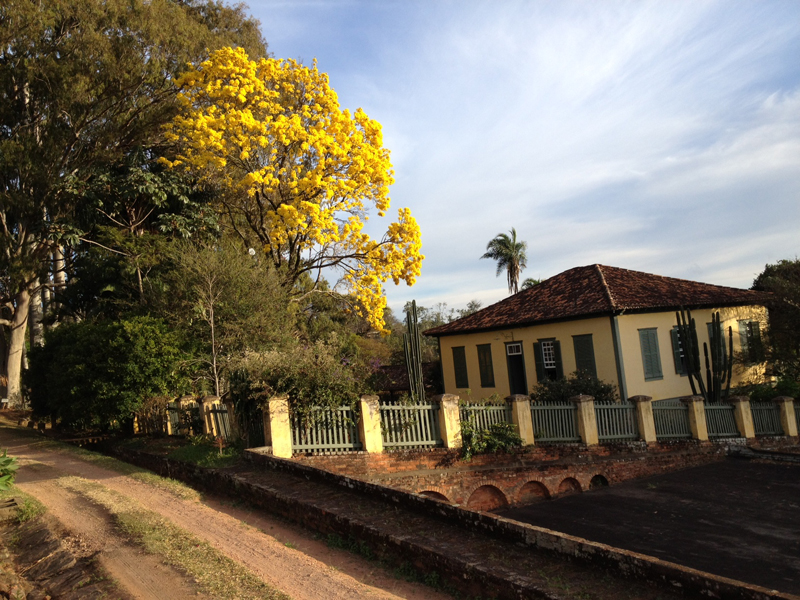
FAF Main House
By Kylie Gordon
At weekly farmers markets in the San Francisco Bay area, under pop-up canopies in public squares from Marin to San Mateo, entire communities come together for several hours at a time to chat with local farmers, to sample pluot and persimmon slices, to stuff canvas grocery bags full of fresh herbs, and to introduce their children and friends to the abundant color, sweetness and diversity of California produce.
Dozens of rolled yoga mats dot the landscape of these markets. Slung over shoulders and peeking out of backpacks, obscured by a tuft of beet greens or wedged against a Brussels sprouts stalk, the ubiquitous mats tell a story of the kinship between yoga and sustainability – the fact that many practitioners are invested not only in their personal wellness, but in the health of the planet too.
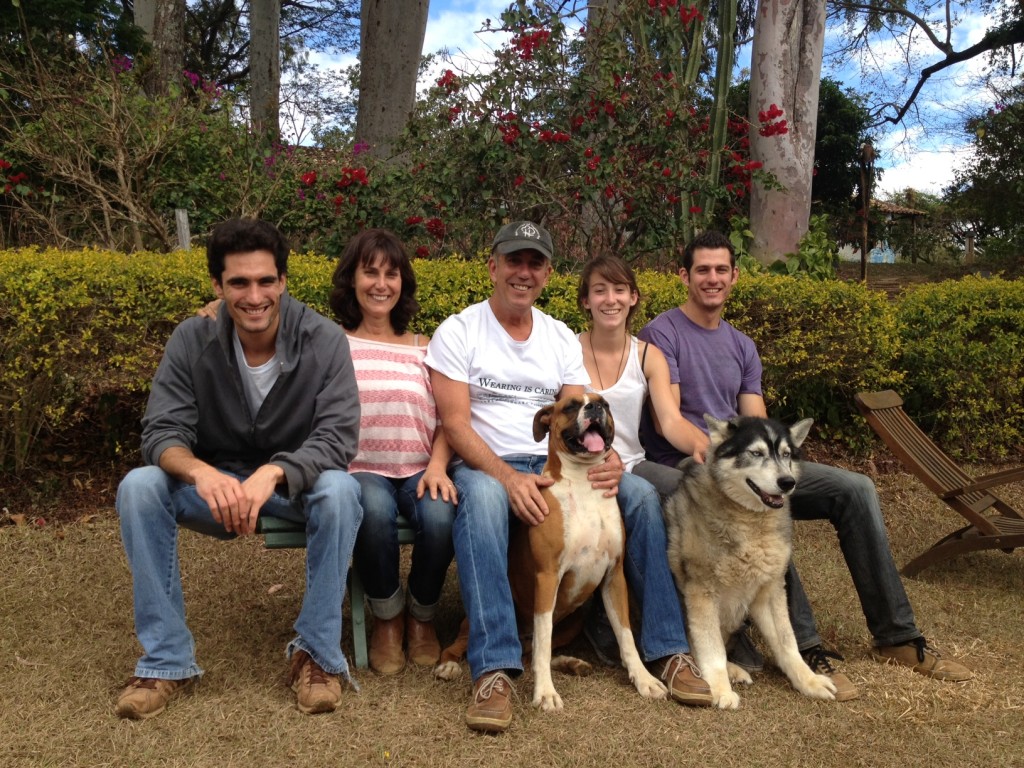 One such practitioner, Silvia Barretto-Croce, is a longtime devotee of natural and organic principles. With her husband Marcos, Silvia owns Fazenda Ambiental Fortaleza or FAF (loosely translated from the Portuguese as “Environmental Fortress Farm”), a progressive organic coffee plantation outside of Sao Paulo that has been in the Barretto family for more than 100 years. Though Barretto- Croce grew up in Brazil, in 1991 she moved to the Chicago area, and eventually began organizing “organic retreats” to bring visitors to FAF. In 2007 I traveled there and learned about Silvia and Marcos’ remarkable vision: to manage a farm — and eventually a hands-on learning community—that demonstrates how agriculture can be ecologically, socially and economically sustainable.
One such practitioner, Silvia Barretto-Croce, is a longtime devotee of natural and organic principles. With her husband Marcos, Silvia owns Fazenda Ambiental Fortaleza or FAF (loosely translated from the Portuguese as “Environmental Fortress Farm”), a progressive organic coffee plantation outside of Sao Paulo that has been in the Barretto family for more than 100 years. Though Barretto- Croce grew up in Brazil, in 1991 she moved to the Chicago area, and eventually began organizing “organic retreats” to bring visitors to FAF. In 2007 I traveled there and learned about Silvia and Marcos’ remarkable vision: to manage a farm — and eventually a hands-on learning community—that demonstrates how agriculture can be ecologically, socially and economically sustainable.
As the devastating realities of climate change take hold, we’re all learning that to enjoy clean air and water, physical health and biodiversity, we have to be mindful of which resources we consume and how we consume them. For decades, Barretto-Croce has cultivated a practice of paying attention—of increased personal and ecological consciousness—that has allowed her to build a model of sustainable organic agriculture and a model yogic life.
At FAF, a breathtaking 1,800-acre paradise nestled against pockets of native Atlantic Rainforest, visitors wake up to an organic breakfast of foods grown and prepared right on the farm before starting the morning (and then evening) with yoga practice. On my visit, we toured the vegetable garden, fruit trees and beehives; separated curd from whey in the dairy; slept on hammocks as toucans coasted overhead; and watched, awestruck, as a just-birthed calf tottered in the grass, umbilical cord still attached to its wrinkled belly.
Over 5,000 miles from home, as the demands of work, routine and family life fell away, we communed with parts of ourselves we hadn’t experienced in a long time. This farm, a spectacular combination of natural beauty infused with intentional living, invites the traveler into a perpetual state of svadhyaya, or self-reflection. FAF provides an experience of biological interdependence, the knowledge that we are not separate from the natural world, but a part of it.
Growing up amid such natural beauty, it is no wonder Barretto-Croce has dedicated a lifetime to preserving it and teaching others to do the same. illumine asked her about how she got started in organic farming and to discuss the connection between yoga and agriculture.
On plants and bees
When my father owned the farm, he was using conventional agricultural practices. I got very interested in beekeeping and started learning how to do it. When I did, I started to see the connection between everything.
My father would say, “Oh, I’m so sorry, I have to spray herbicides and it will affect the honey and your bees.” I would say, “Why? The bees are far away.” He would answer, “But it will kill the plants, so the bees won’t be able to get honey.”
For the first time I started to see that everything that happens around the farm—like spraying chemicals—affects the bees. That triggered thoughts about how our behavior and daily practices impact the world around us. Because of that, I became interested in learning what “organic” was.
On organic versus conventional agriculture: Organic is when you treat the soil as something alive. To do that, you can’t rely on chemicals. With conventional agriculture, you either use chemicals or minerals in the soil. You don’t see the soil as something alive, just as a composite of minerals.
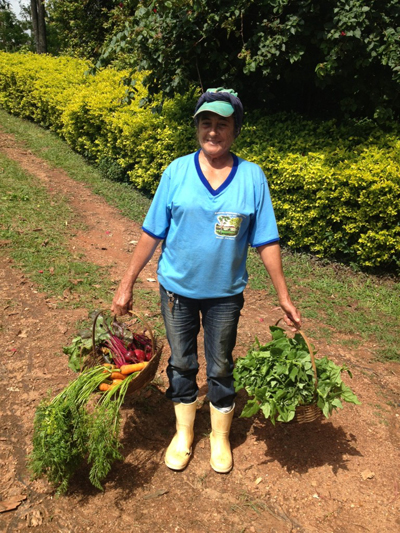 Conventional agriculture thinks in terms of death. For example, you choose to plant something – a monoculture – and you kill everything else, because everything else is seen as a potential enemy competing with your crop for resources.
Conventional agriculture thinks in terms of death. For example, you choose to plant something – a monoculture – and you kill everything else, because everything else is seen as a potential enemy competing with your crop for resources.
With organic farming, we believe that agriculture is life, that life is diversity, and that you have to learn to live and farm with that diversity. You find solutions that add more life instead of killing things.
On the parallels between yoga and organic farming
We started transforming the farm to organic in 2002 and bringing groups to the farm for yoga retreats in 2005. Yoga was a big transformation in my life. I noticed that it made me more aware of things and made me a person that was more in tune with myself. Because I was more in tune with myself, I could better observe what was around me.
I noticed that people who came to the farm were totally disconnected. We would show them the farm, but they would not see. People carry a lot of stress, so they are often living in their heads and cannot feel nature around them.
I thought that bringing groups to do yoga retreats on the farm would help
people be more open to experiencing their surroundings by getting in touch with the daily work of agriculture; by paying attention to the weather; by waiting for the right day to plan for the crops; by dealing with too much sun or too much rain. You have to always be aware! I think it’s very important for people from the city to come see the work behind growing the food because only then will they know how to make choices.
On social sustainability and fair business practices
Near our farm, a lot of good people on small, family-run farms were not surviving financially. They were selling their coffee for a very low price to buyers who felt quantity was important, not quality.
We saw that these farmers would be the perfect people to grow quality coffee. They had good soil, the right altitude, the right work ethic. When you’re a family-run farm with no hired employees, you have to survive, so you work all hours every day, do whatever it takes to get your farm to be sustainable.
So my husband and son, Marcos and Felipe, started teaching the farmers what good coffee is, helped them shift their focus from quantity to quality. They taught them to raise their bags, not to put coffee on the ground, not to mix green beans with ripe beans, how to dry well, store well, etc.
Then Marcos and Felipe started investing in their farms. They brought buyers directly to the farmers and organized direct trade, which meant the farmers could now sell their coffee for a much higher price. Marcos and Felipe created a brand for this coffee and called it Bob-o-link. The name is a metaphor. We lived on Bob-o-link Road in Highland Park, and the Bob-o-link is a bird that migrates from Illinois to Brazil. We like people to think beyond their borders!
On svadyaya or aligning our daily actions with our deepest values
For me, beekeeping really was a revelation. When I understood through beekeeping that everything is connected, I started on my path. One thing led to another. After I started beekeeping I went to organic; then I went to how I was going to deliver a baby naturally; then I went to anthroposophic medicine and decided I needed to change how I received medicine and food; then I thought I had to change the way I viewed people and work at the farm; and then I arrived at yoga.
Before yoga, I think I lived very much in my head. This whole path of how you treat your body, how you feed and care for yourself impacts how you treat other people. You want other people to have the same opportunities. Then you feel that we are all connected, all together.
A Midwest native, Kylie Gordon taught yoga on Chicago’s North Shore for several years. Silvia Barretto-Croce was one of her very special students. In 2009, Kylie moved to the San Francisco Bay Area, where the abundant produce and emphasis on sustainable living has been steadily shifting how she thinks about her food, her habits, and the relationship between yoga and ecology.

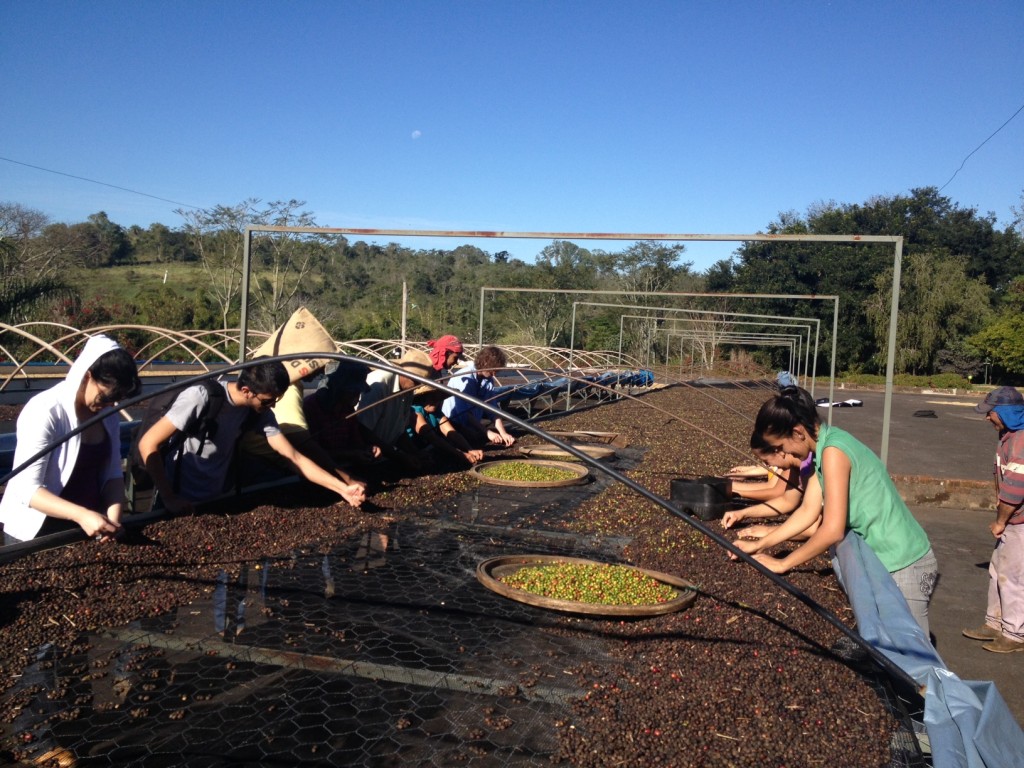
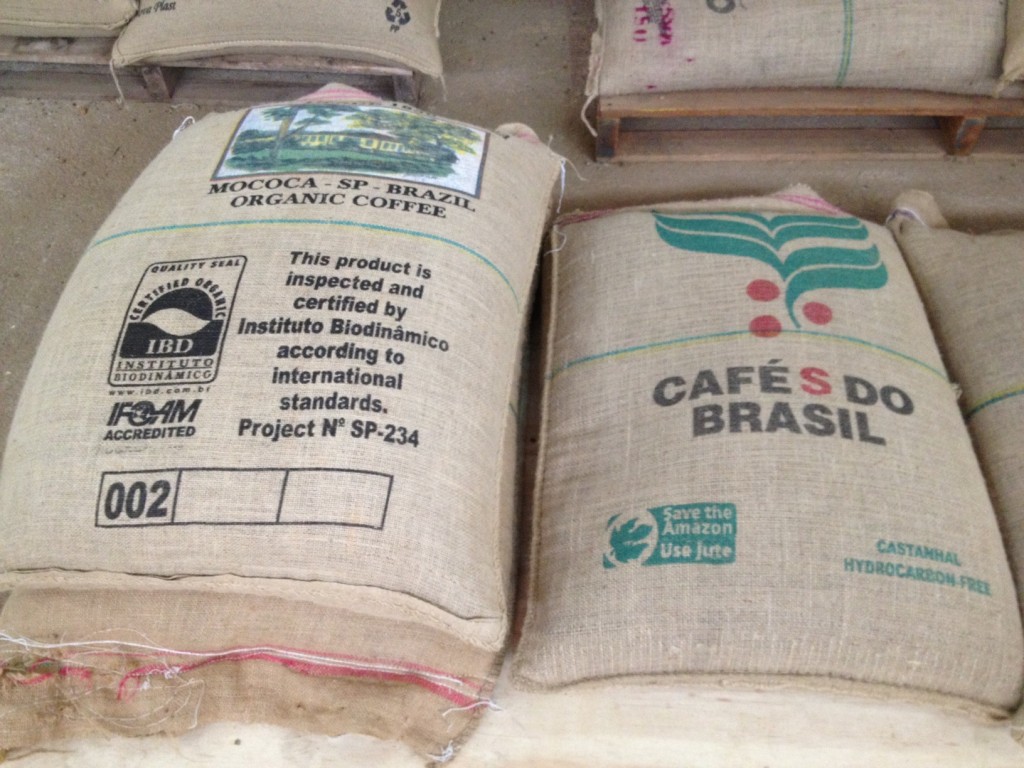
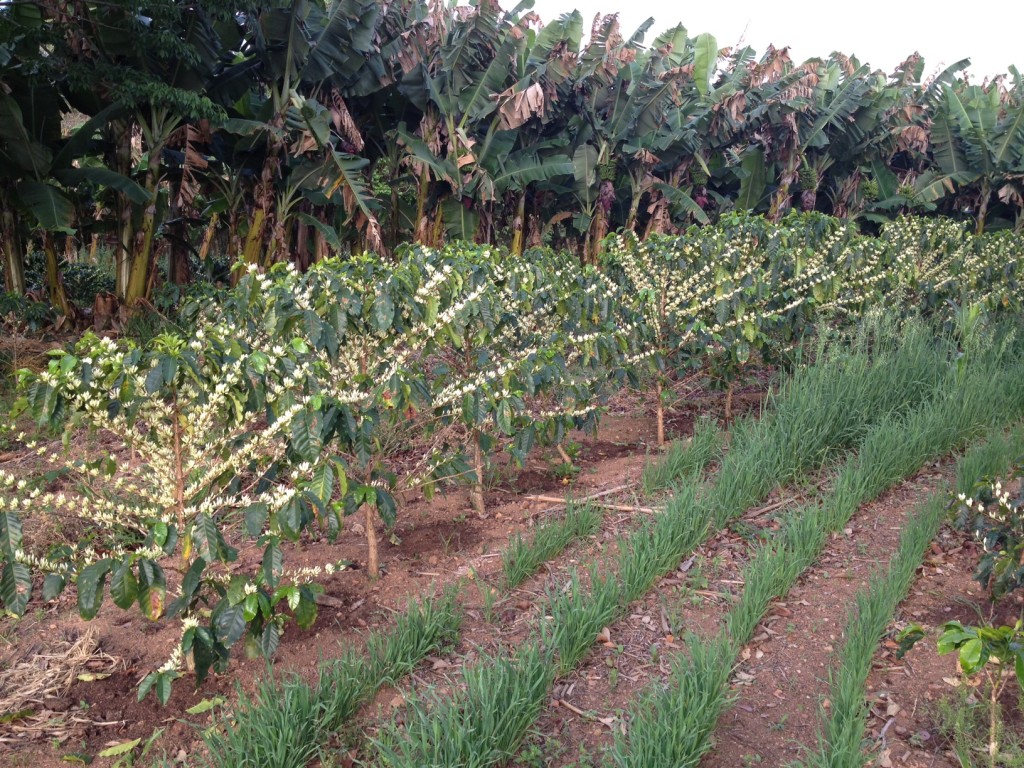
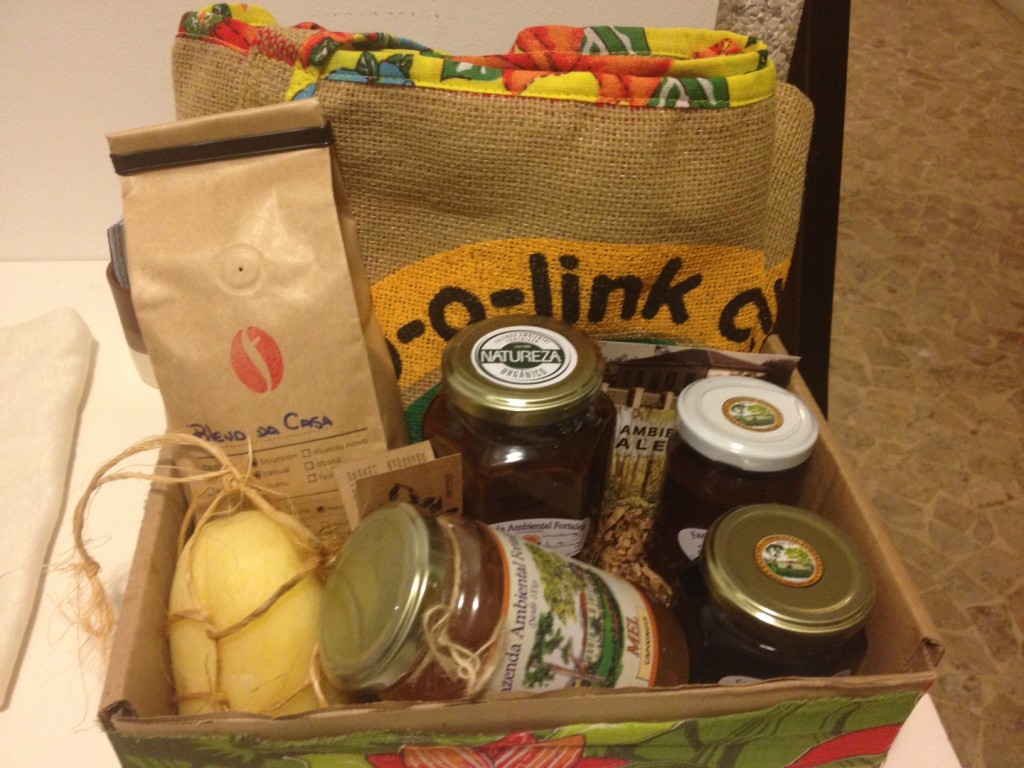























No Responses to “Organic Matters: A yogic vision for the sustainable future”